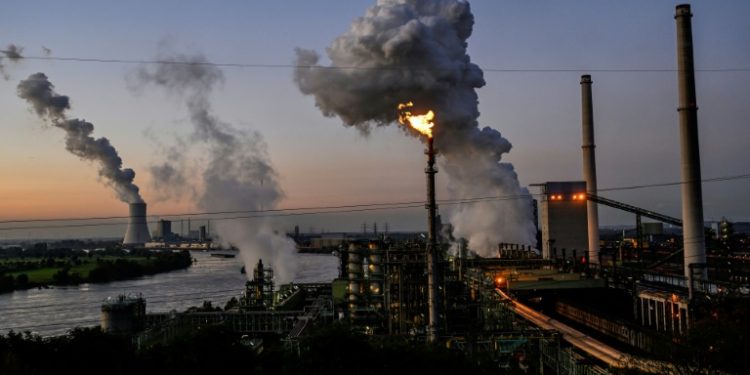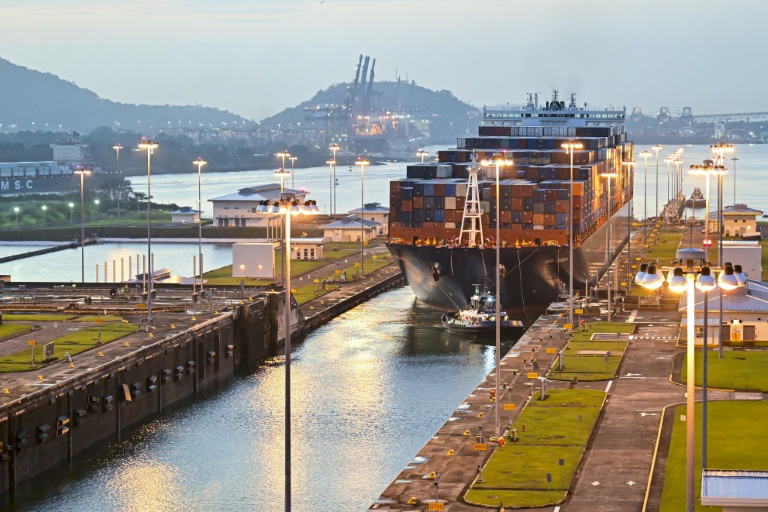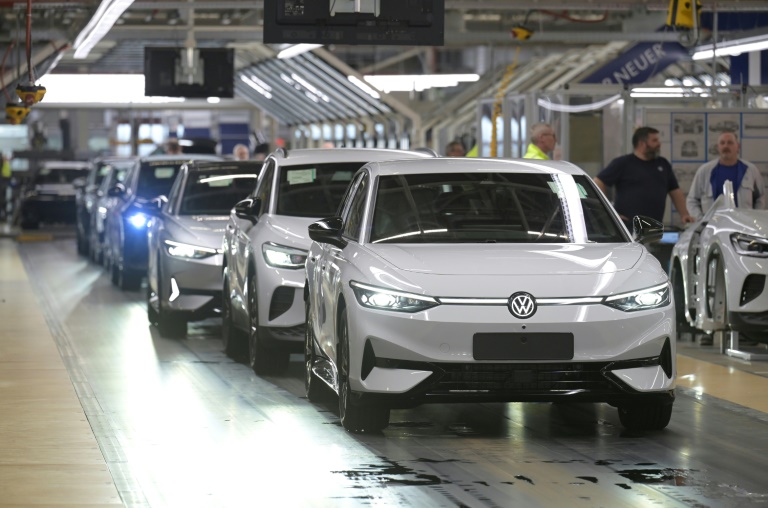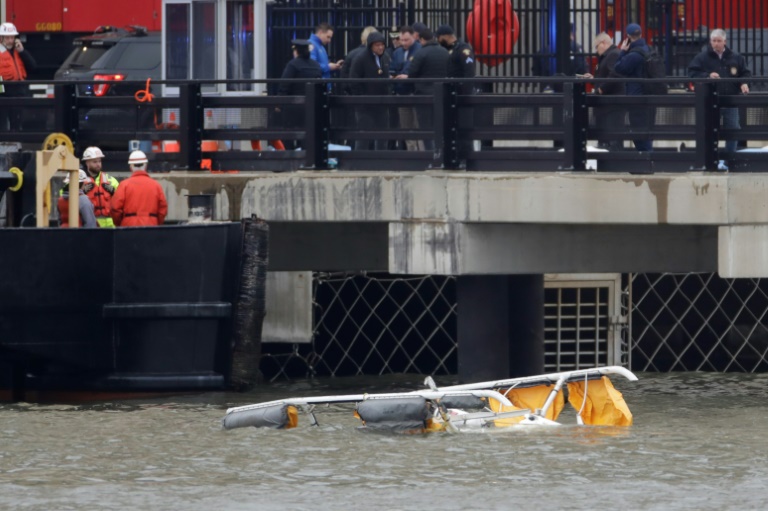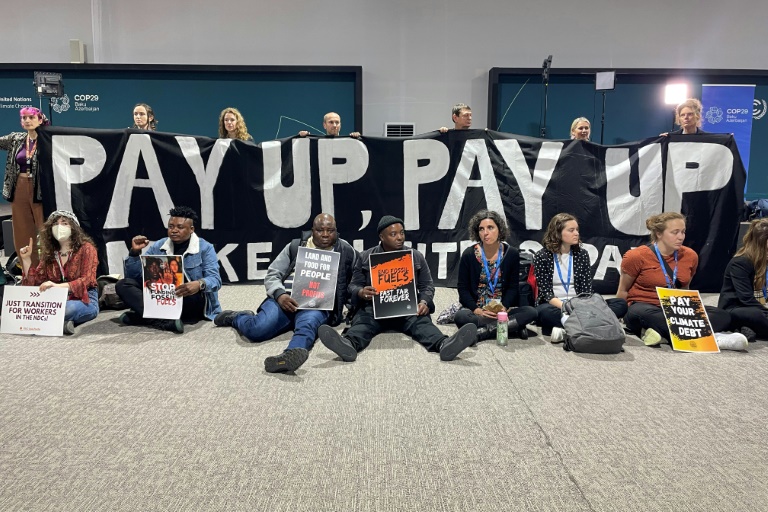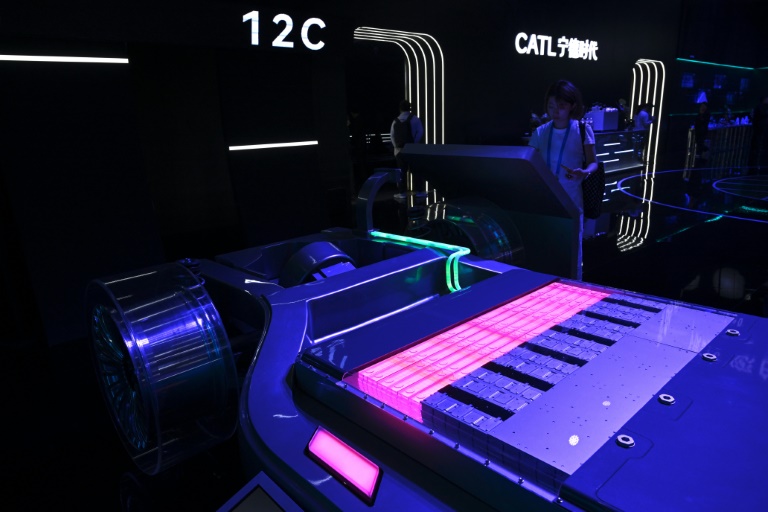Frankfurt (Germany) (AFP) – German industrial giant Thyssenkrupp on Tuesday reported a massive annual loss for the second year running, as it battles challenges including a crisis in its historic steel division. The conglomerate, whose products range from steel to submarines, booked a loss of 1.5 billion euros ($1.6 billion) for the 2023-24 financial year, after losing some two billion euros the previous year.
Once a symbol of German industrial might, Thyssenkrupp has suffered as high costs at home, falling prices for its products, and fierce competition from Asian rivals hammered its traditional steel business. The group’s woes reflect a bleak outlook generally for German manufacturers, in sectors ranging from autos to chemicals, as Europe’s largest economy heads for a second straight year of contraction.
“Of course, we are not satisfied with the result overall,” the Essen-based group’s finance chief Jens Schulte told a press conference, pointing to “massive market challenges.” “We had set our sights higher,” he added. Problems were particularly acute at the troubled steel division, which saw operating profit tumble 18 percent and also had to take a one-billion-euro write-down on its assets.
Chief executive Miguel Lopez, however, said there had been progress in pushing through an urgently needed restructuring, and the firm predicted its financial position would improve in the next financial year. Sales will grow by up to three percent, and the group should return to profit with net income of up to 500 million euros, Thyssenkrupp forecast. The group runs its financial year from October to September.
Investors cheered the brighter outlook, sending the group’s shares up nearly nine percent on the Frankfurt Stock Exchange — although they remain about 40 percent lower on a year-to-date basis.
In 2023-24, total sales of the group, which has nearly 100,000 employees, fell seven percent to 35 billion euros, with Thyssenkrupp pointing to “significantly weaker demand” from major industries. As well as steel, other key divisions including automotive and materials were hit by falling orders and sales.
The group has been seeking to spin off the steel unit, which is Germany’s biggest steelmaker, but the process is proving difficult. Earlier this year, it completed a key step by selling a 20-percent stake to a group owned by Czech billionaire Daniel Kretinsky. Talks are continuing with Kretinsky, with the goal that he will eventually hold 50 percent of the unit.
However, the crisis at the division, which has about 27,000 employees, deepened in August when its boss and the head of its supervisory board quit after clashing with Lopez about the best way forward. The group had previously said it plans to cut jobs at the division, without saying precisely how many. Lopez gave few details Tuesday about the planned overhaul but said the group had agreed with workers’ representatives that it would be carried out “without compulsory redundancies if possible.”
The CEO also said the company was talking to the German government about possible state participation. He described this as a logical step and a move that other European steelmakers were making.
There were some bright spots in the group’s results — sales and profits at its marine systems division jumped due to the delivery of a submarine and progress in other projects. Thyssenkrupp is seeking to separate the unit from the wider group, potentially via a spin-off. It is also in talks with the German government about possible state participation.
Lopez said the coming financial year would be one marked by “transition” and key decisions, adding it was urgent to speed up the business’s overhaul. “Those who do not want to change will also lose what they want to preserve,” he warned. “Deindustrialisation in our country has already begun.”
© 2024 AFP

